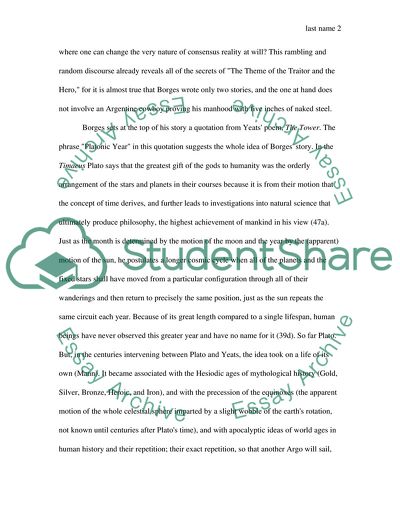Cite this document
(The Theme of the Traitor and Hero by Borges Book Report/Review, n.d.)
The Theme of the Traitor and Hero by Borges Book Report/Review. https://studentshare.org/literature/1720385-a-close-readingcritique-of-jorge-luis-boges-short-story-the-theme-of-the-traitor-and-the-hero-in-his-book-collected-fictions
The Theme of the Traitor and Hero by Borges Book Report/Review. https://studentshare.org/literature/1720385-a-close-readingcritique-of-jorge-luis-boges-short-story-the-theme-of-the-traitor-and-the-hero-in-his-book-collected-fictions
(The Theme of the Traitor and Hero by Borges Book Report/Review)
The Theme of the Traitor and Hero by Borges Book Report/Review. https://studentshare.org/literature/1720385-a-close-readingcritique-of-jorge-luis-boges-short-story-the-theme-of-the-traitor-and-the-hero-in-his-book-collected-fictions.
The Theme of the Traitor and Hero by Borges Book Report/Review. https://studentshare.org/literature/1720385-a-close-readingcritique-of-jorge-luis-boges-short-story-the-theme-of-the-traitor-and-the-hero-in-his-book-collected-fictions.
“The Theme of the Traitor and Hero by Borges Book Report/Review”. https://studentshare.org/literature/1720385-a-close-readingcritique-of-jorge-luis-boges-short-story-the-theme-of-the-traitor-and-the-hero-in-his-book-collected-fictions.


